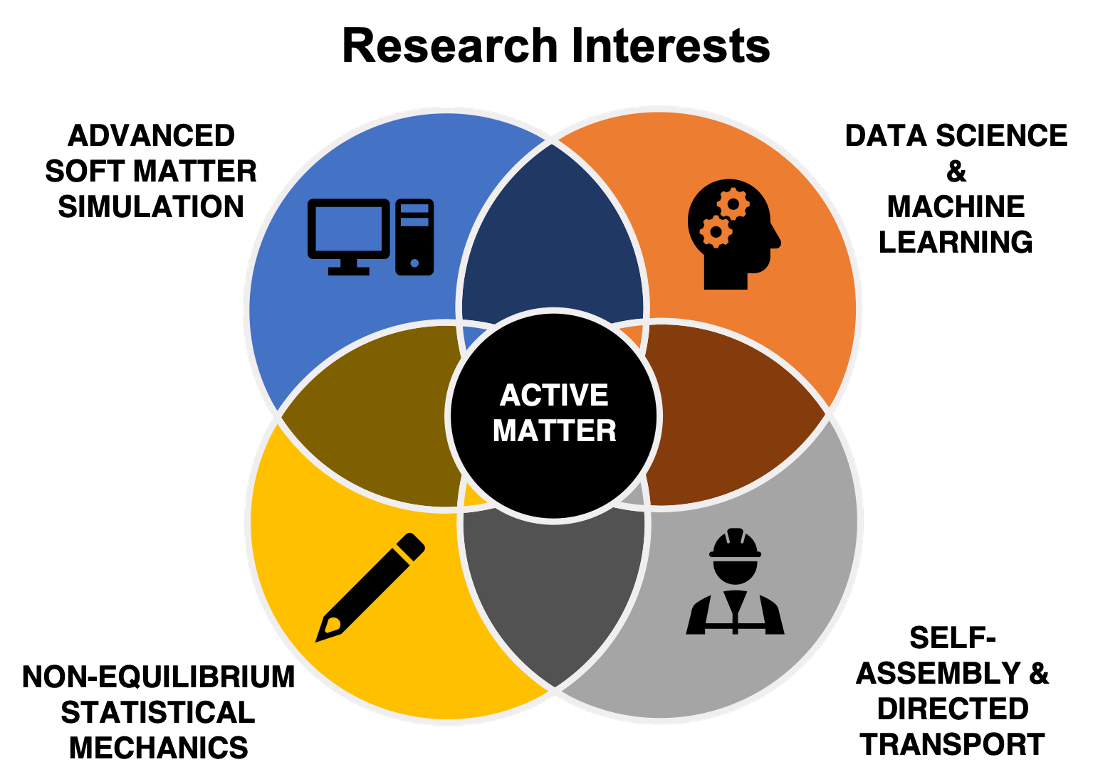2020 Virtual AIChE Annual Meeting
(3bl) Multiscale Modeling of Soft Active Materials
Author
There is a high level of optimism that all these applications and many more will be fully realized, but it is necessary to first systematically quantify the true individual and collective dynamics of active particles in a multitude of complex environments. Since these systems are fundamentally out of equilibrium, it is no longer possible to appeal to the established theoretical frameworks to quantify phase behavior. This challenge is further compounded by the fact that many of these active particles are capable of large self-propelling velocities, and thus hydrodynamic interactions may play a dominant role in governing phase behavior. This requires advanced simulation techniques that faithfully take into account both the particle and the surrounding fluid. In order to exploit the unique collective behavior of active particles to accomplish meaningful task at the microscale, it is necessary to understand the intricate interplay between thermal, hydrodynamic, and dispersive forces. This can be accomplished in an efficient and systematic manner, by utilizing a number of machine learning techniques and data-driven approaches readily suited for problems in the physical sciences.
Teaching Interest: I possess the expertise and training to effectively teach most introductory chemical engineering and chemistry courses. At a more advanced level, I am well suited to teach courses more aligned with my own research interest: physical chemistry, statistical mechanics, thermodynamics & kinetics, and computational methods in material design. From my own experience, I noticed that there is a particular area in the broader science curriculum that could be supplemented. This first came to my attention as I was aiding more junior students in editing their application materials for graduate school and various fellowships. Although they possess the technical expertise, they lack the ability to effectively communicate their work to an audience outside their field. This is arguably one of the most important skills as a researcher. It is important to me that advanced undergraduates and graduate students find their voice in scientific writing and become effective communicators. Through a prompt-driven course, I think it is possible to train students to reflect deeply on how their writing is perceived, and how to distill their work to be understood by the appropriate audience.
